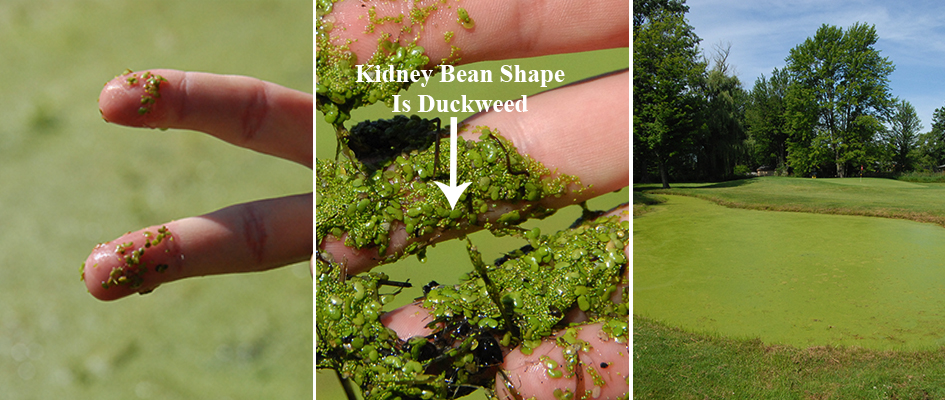Treating Duckweed
Treating duckweed in a pond is no easy task, but if you follow our tips you can successfully rid your pond of duckweed. To control duckweed it is important to know why it is so hard to control. Duckweed is not rooted, although it does have small hair like roots and each leaf is about the size of the tip of a pencil. This free floating weed moves with the wind making it difficult to treat with a contact herbicide. Many of the standard rules about killing weeds in your pond will be broken when treating duckweed.
To successfully treat pond duckweed you will need to use our diquat herbicide, Tsunami DQ. There are other products on the market that will work like Sonar, but they are expensive with lots of restrictions. Tsunami is our product so we can give you tips about this product. If you are using a different product you may not want to follow these tips. You will have to use the maximum recommended dosage of Tsunami DQ, which is 2 gallons of product per acre. Depending on how severe the growth is you will need to repeat this application weekly until the growth is under control. You may need to mix a little water (2-4 gallons) with the 2 gallons of product, but the water is not meant for dilution, it is just to help you get the coverage you need.
 Duckweed Treatment Tips:
Duckweed Treatment Tips:- Wait until the wind blows the duckweed to one side of the pond
- Spray ALL of the growth at once with the maximum dosage.
- Repeat in 1 week if there is still bright green growth.
Treating existing duckweed is just the first part to controlling duckweed growth. We encourage all pond owners fighting duckweed to make environmental changes to prevent the growth of duckweed. These include reducing fertilizer runoff, using high doses of beneficial pond bacteria to reduce nutrients, introduce an aerator or fountain to get the surface water moving, and clear surrounding brush to allow wind to move the surface of the pond. Duckweed thrives in nutrient rich, stagnant water.
For additional help contact Sanco Industries.
